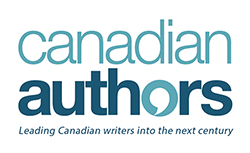If you visit our About page of the website and read What We Do, you will see, right at the top, that Canadian Authors is dedicated to advocating “for the protection of rights and equitable treatment for writers”.
If you then proceed to the History page you will see that since its inception 96 years ago, CAA has been continuously advocating for legal and other changes that benefit its members and, in fact, all writers in Canada. CAA was instrumental in bringing about the 1924 Copyright Act legislation, without which Canadian writers would not enjoy copyright in their works. CAA also lobbied for the creation of the Public Lending Right program, and for Canada to join the Universal Copyright Convention. CAA was vigilant and vocal in the most recent round of Copyright Act amendments, which as you may know, had a significant adverse effect upon writers (more on that later). Recently, CAA joined the International Authors Forum (IAF), which advocates for writers’ rights around the world.
One of the most recent IAF initiatives is a letter-writing campaign to publishers of literary works. An American sister organization, The Authors Guild, has composed an open letter to the Association of American Publishers, and invited all IAF members to use it as a template to send to the publishers’ associations of their own countries. Their letter explains that among the reasons for authors’ declining income (as is true in Canada) is “unfair terms in publishing agreements.” It urges publishers to revise some of their standard contract terms. CAA signed this letter as a fellow IAF supporting group, and we’ve now prepared our own letter to Canadian publishers.
IAF has also prepared two documents that help authors understand their publishing agreements, and as an IAF member, CAA is happy to disseminate those documents. The document Ten Principles for Fair Contracts is an information-packed one-page document that compares fair and unfair contract terms side-by-side. The document Stop Forcing Authors to Take Unlimited Financial Risks explains what the warranty and indemnity clauses in standard publishing agreements mean and how they are unfair to authors. We encourage you to browse these documents to better understand the contracts your publishers present to you, or that you may have already signed.
Regarding the 2012 round of Copyright Act revisions, enacted under the Harper administration, the most devastating change adversely affecting writers (and publishers) is the new “educational purposes” fair dealing exception to copyright infringement which was purportedly enacted in the interests of “balanced copyright”. Statistics gathered by Access Copyright accessible on their interpretation of fair dealing page show that since the enactment of the “educational purposes” exception, publisher income has been reduced by 16%, and a significant reduction is expected in the number of new, high quality materials available to Canadian teachers and students.
With a new party in power, Canadian Authors and its sister organizations hope to rally support for further changes to the Copyright Act that would promote actual balance in the literary community, and we look forward to advocating for that, too.
—Matthew Bin and Jeananne Kathol Kirwin

